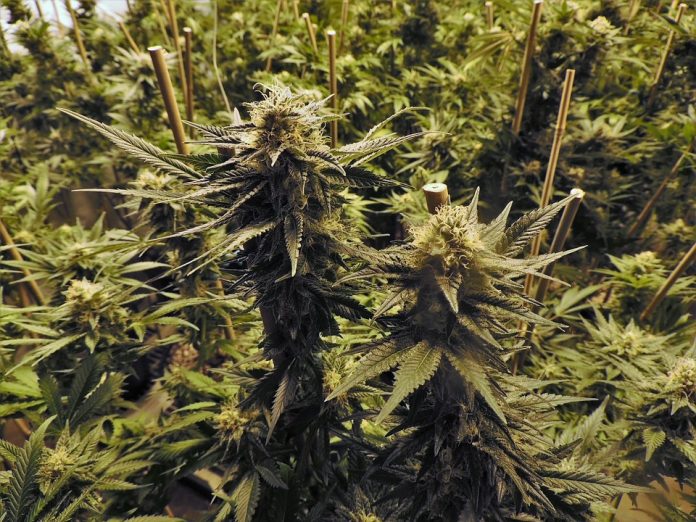The Saskatchewan Liquor and Gaming Authority (SLGA) will issue roughly 60 retail permits to sell marijuana in up to 40 communities, according to an announcement from the provincial government on Monday.
An independent third party will assist the SLGA in the two-phase process used to select permit recipients. Initially, permits will be limited to communities with a minimum of 2,500 people, with all communities having the option to opt out of having retail marijuana stores entirely.
Future details, such as application fees and deadlines, will be revealed at a future date.
Regina MLA Gene Makowsky, the Minister Responsible for SLGA, said they preferred private vendors to a government run operation because the startup costs would run too high.
“Those tens of millions of dollars would be required up front,” Makwosky said. “I’d rather see those go to schools and highways and roads in our province.”
Retail marijuana store operators would be required to be standalone outlets, meaning they could only sell marijuana, marijuana accessories and ancillary items. Sellers must also be able to track and report their inventory, and would be required to meet “good character” criteria to be eligible for a permit.
Jim Engel, the SLGA’s vice president of corporate services, said the good character requirement is a common one that’s already used by the government in areas like selling liquor licences.
“The criteria will be fairly similar, but they might not be exactly the same,” Engel explained during a media scrum on Monday. “It does go beyond looking strictly a criminal record check to consider other factors such as associates of the person, or people, involved in the business.”
Prince Albert is eligible for two of the province’s 60 permits, but that number could rise depending on how many communities opt out. It also could fall to zero if Prince Albert city council decides against hosting any retail outlets. A number of First Nations are also eligible for permits, including Peter Ballantyne Cree Nation.
Makowsky said giving municipal governments the final say in this area was “the respectful way to go,” but added the role out announced on Monday was an initial offering, meaning things could change in the future.
“SLGA has spent a lot of time on this, and cabinet as well,” he said. “We’re working as quickly as we can. We want to be diligent. We want to get it right. There’s only one chance to get it right the first time.”
The initial 60 permits will cover roughly 70 per cent of the province’s population. Makowsky said that if all goes well, more permits will become available to fill in the gaps.
The government’s announcement on Monday caught a few people off guard, one of which was Prince Albert Mayor Greg Dionne.
Dionne said none of the proposals were discussed with municipalities before they were released to the media. The SLGA plans to speak with various municipal governments throughout the rest of the week, but Dionne said that’s something that should have been done first.
“It would have been nice to have the discussion in advance,” he said.
Dionne added the city’s two biggest concerns are how the proceeds from permit sales will be divided and whether local businesses will be given preference in Prince Albert.
Right now he knows of at least five applicants to operate marijuana retail outlets in the city, but there is no guarantee any of the five would be selected. According to the rules laid down on Monday, any applicants who pass the first phase of the screening process will be entered into a lottery to determine if they’ll get a permit.
As for whether Prince Albert city council will even allow marijuana retail outlets, Dionne said it’s too early to tell. However, he added that no major objections have come up so far.
In April 2017 the provincial government introduced the proposed Cannabis Act, which was originally intended to come into force no later than July 2018.
Saskatchewan joins Manitoba and Alberta as provinces that have decided to allow private retailers to sell marijuana. Others, like Ontario and Quebec, will have provincial government owned sellers.
@kerr_jas • jason.kerr@paherald.sk.ca


